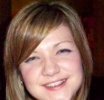CJ Montague, who works in publishing, sees benefits in blurring the lines between book fairs and music festivals.
 Edinburgh International Book Festival claims to be the world’s biggest celebration of the written word, with 700 events each August and 190,000 visitors last year.
Edinburgh International Book Festival claims to be the world’s biggest celebration of the written word, with 700 events each August and 190,000 visitors last year.
Festivals like this one, and Glasgow's Aye Write! which closes this weekend, have become a big deal, confirming that, in spite of the high street downturn in book buying, so are books.
Last month Glasgow also played host to Margins Book and Music Festival, an event that demonstrates more than just keen word play. Culturally there is no more apt a partnership, as writing and music have always been inextricably linked - two cruxes of culture supporting one another.
Working within the book trade, it is not particularly surprising to me that books are eternally popular, as they have been forming the basis for our popular culture for a long time.
In November 2011, the 20th anniversary of Roald Dahl's death, How Roald Dahl Shaped Pop aired on BBC Radio 2. Kelly Jones (Stereophonics), Alex James (Blur), Kate Nash and even Bat for Lashes attributed Dahl's gruesome tales with having impacted on their formative songwriting.
Expanding into yet another branch of popular culture, Charlie and the Chocolate Factory inspired not just a movie, but Sammy Davis Jr's only number 1 single The Candy Man, penned for the 1971 film of the book. More recently, comic songster Tim Minchin has penned the score and lyrics for the RSC’s Matilda The Musical, now on show in London’s West End.
Dahl is just one example of how books permeate all culture. Fellow children's author Michael Morpurgo is the man of the moment with War Horse receiving the Hollywood treatment in cinemas after the stage adaptation swept the board at the TONY Awards.
There continues to be a stream of film versions of stories that have already been tested in the books market, with Steig Larsson’s The Girl with the Dragon Tattoo trilogy among many recent examples.
With books increasingly creating the zeitgeist for the next cultural boom, it is little wonder that the last decade has seen an increase in the popularity of the book festival.
With authors and musicians performing, events such as the Hay Festival and Cheltenham Literary Festival are becoming ever more influential.
World Book Night 2011 saw celebrities reading to crowds packed into Trafalgar Square, spoken word performances now punctuate Glastonbury, and events like Literary Death Match, a competitive reading and writing show, are popping up across the country and even featuring in opinion-forming media like BBC Radio 2's The Janice Long Show.
Blurring the lines between a traditional book fair and what we have come to expect from a music festival seems like a winning formula.
Much like the music scene, where you might happily pay £30 and upwards for a gig ticket for the (forgive the pun) novel enjoyment of the live experience, so in the book industry, readers seem happy to pay full price or near enough for a book they have seen signed by their favourite author, while they are far less prepared to pay top dollar for a copy of the same book on the high street.
Taking to the road has become one of the best ways to connect with your public, whether they are readers or listeners. Our instant society may allow anyone their 15 minutes of fame, but it also allows for the tenacious and truly talented to cultivate real fame and success - and if you get out there and embrace the fans, instead of the cliché, that could be you.


Why are you making commenting on The Herald only available to subscribers?
It should have been a safe space for informed debate, somewhere for readers to discuss issues around the biggest stories of the day, but all too often the below the line comments on most websites have become bogged down by off-topic discussions and abuse.
heraldscotland.com is tackling this problem by allowing only subscribers to comment.
We are doing this to improve the experience for our loyal readers and we believe it will reduce the ability of trolls and troublemakers, who occasionally find their way onto our site, to abuse our journalists and readers. We also hope it will help the comments section fulfil its promise as a part of Scotland's conversation with itself.
We are lucky at The Herald. We are read by an informed, educated readership who can add their knowledge and insights to our stories.
That is invaluable.
We are making the subscriber-only change to support our valued readers, who tell us they don't want the site cluttered up with irrelevant comments, untruths and abuse.
In the past, the journalist’s job was to collect and distribute information to the audience. Technology means that readers can shape a discussion. We look forward to hearing from you on heraldscotland.com
Comments & Moderation
Readers’ comments: You are personally liable for the content of any comments you upload to this website, so please act responsibly. We do not pre-moderate or monitor readers’ comments appearing on our websites, but we do post-moderate in response to complaints we receive or otherwise when a potential problem comes to our attention. You can make a complaint by using the ‘report this post’ link . We may then apply our discretion under the user terms to amend or delete comments.
Post moderation is undertaken full-time 9am-6pm on weekdays, and on a part-time basis outwith those hours.
Read the rules hereComments are closed on this article